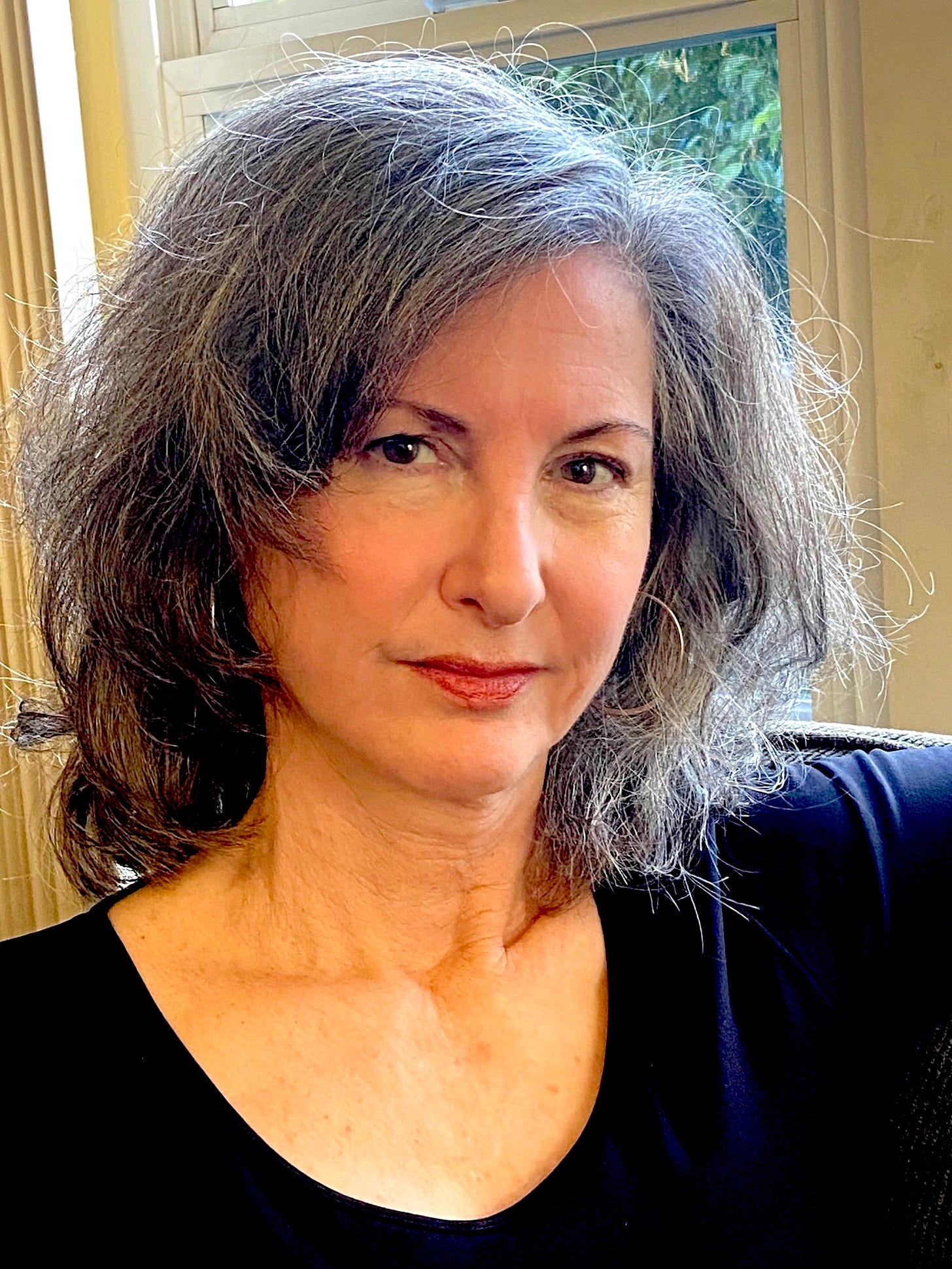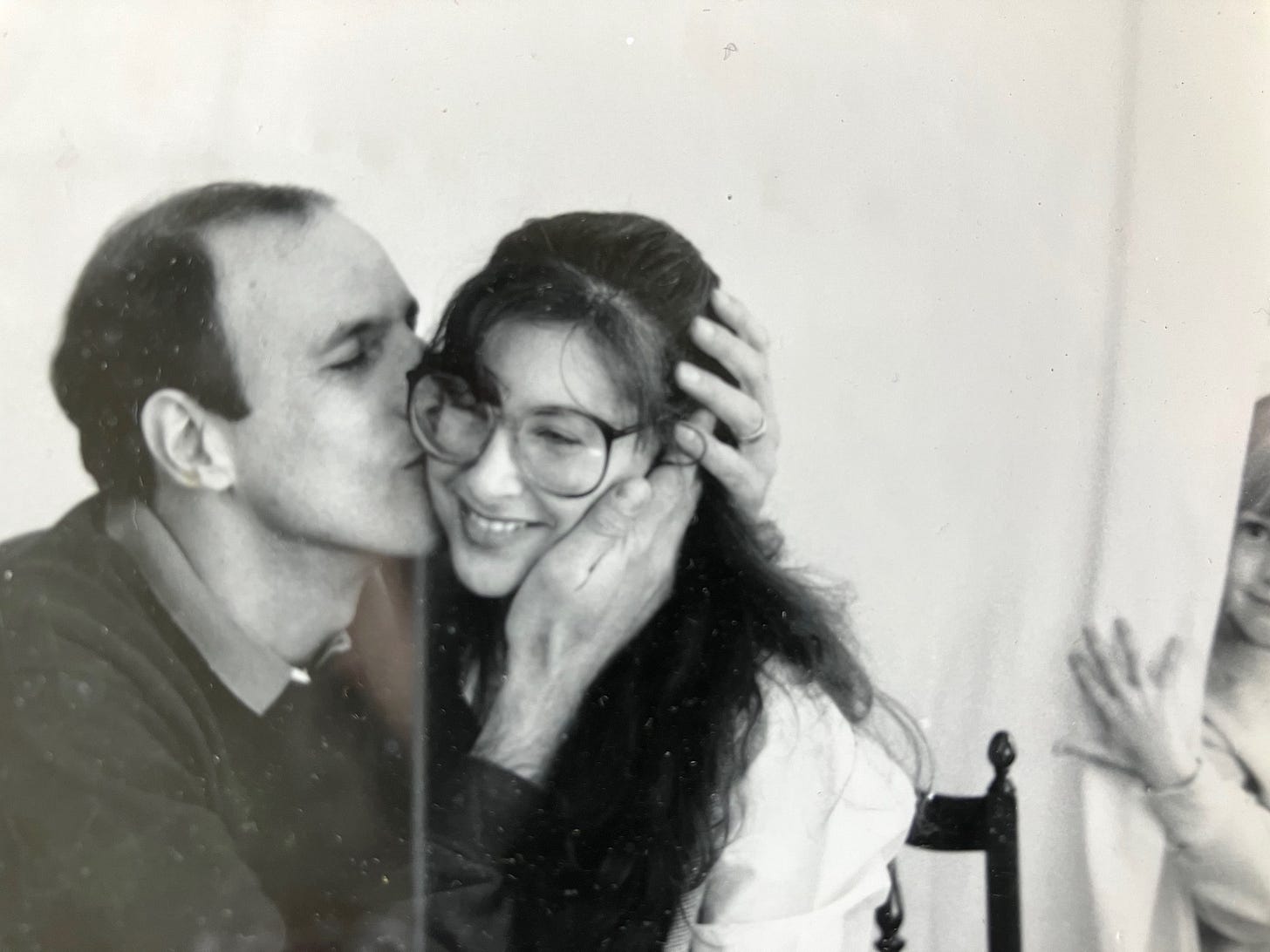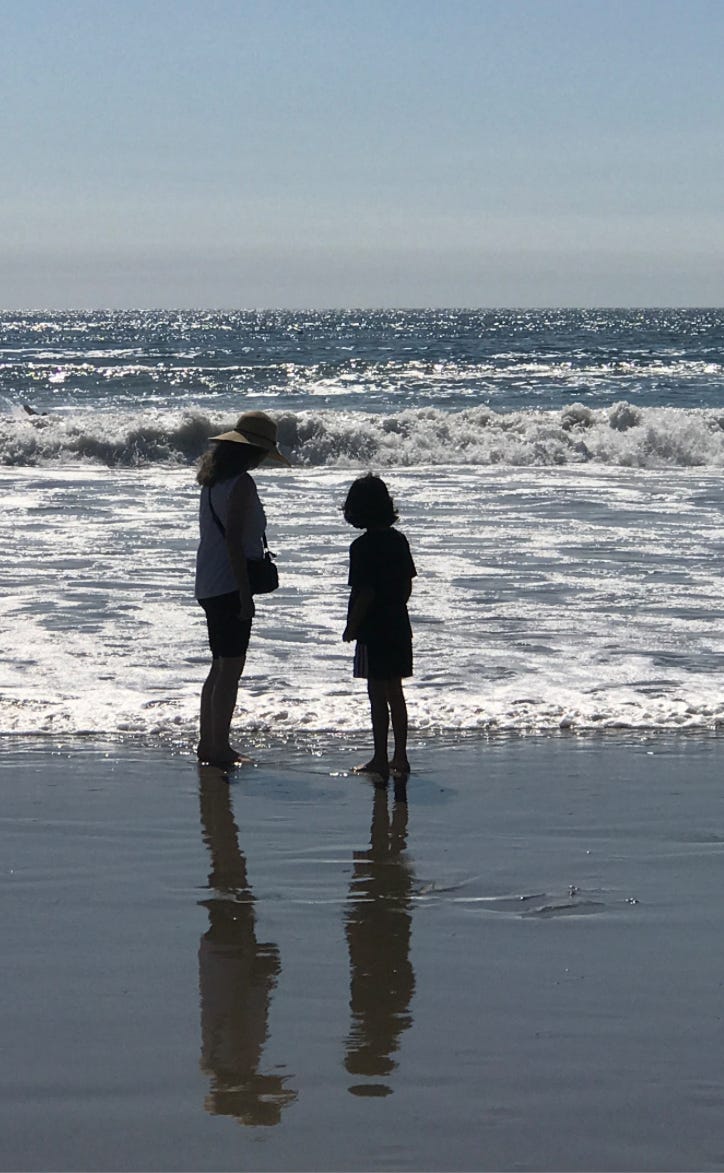Loving Is Its Own Reward
The Body, Brain, and Books: Eleven Questions with writer, editor, and teacher Karen Palmer
Welcome to another edition of The Body, Brain, & Books. If you enjoy reading these quick, insightful interviews brimming with wisdom and hope, please become a subscriber!
Karen Palmer’s memoir She's Under Here grew out of her award-winning essay The Reader Is the Protagonist, first published in Virginia Quarterly Review and selected by Leslie Jamison for inclusion in Best American Essays 2017. She is the author of the novels All Saints and Border Dogs and has received a Pushcart Prize and grants from the NEA and the Colorado Council on the Arts. Her work has appeared in The Rumpus, The Kenyon Review, Arts & Letters, and Kalliope, among others; a short story, Birds of Paradise, won the 2022 Emily Clark Balch Prize for Fiction. She teaches at Lighthouse Writers Workshop in Denver, CO, and lives with her husband in California.
What are you reading now?
I’m reading Jonas Hassen Khemiri’s novel The Sisters. In recent years I’ve been drawn to shorter books, but this one, about the three Mikkola sisters, who are half Swedish and half Tunisian, is 638 pages. It’s constructed in seven parts, each covering an ever-tightening time span, and is witty and inventive and completely absorbing.
What are your most beloved books from your youth? Did you ever hide any from your parents?
I had an uncle who worked at RCA records and one Christmas he sent me boxed-set LPs of The Wizard of Oz, and Alice in Wonderland. Included were copies of the books, with the original illustrations. I read them over and over and over. As for hiding books, my parents used to keep their racier novels in the third layer of a specific bookcase. I knew just where to find them, and would read them at night under the covers.
What’s your favorite book to reread? Any that helped you through a dark time?
There are a handful of books I reread religiously: Larry Brown’s novel Joe, Austen’s Pride & Prejudice, Lucia Berlin’s stories in A Manual for Cleaning Women. For pure humanity in dark times, you can’t beat Edward P. Jones’s The Known World.
What’s an article of clothing that makes you feel most like you?
All my adult life I’ve worn plain white T-shirts with everything. They’re soft and comfy and, if the weather is deadly hot, you can walk in the sun without feeling attacked.
What’s the best piece of wisdom you've encountered recently?
My cousin lost her house in the Eaton Fire, and when I asked how she and her husband were managing, she said, “We’re learning what we can live without.”
Tell me about any special relationship you’ve had with an animal, domestic or wild?
When I was a child, our family cat was the love of my life. I would pick bouquets of flowers for her and feed her treats. She even had a theme song, which I belted out unselfconsciously. Alas, she preferred my mother. I didn’t mind that as much as I might have. It taught me that loving is its own reward.
What's one thing you are happy worked out differently than you expected?
My memoir, She’s Under Here, will be out in September. It took years to write and more years to sell. I was often unhappy, but in the end this was for the best, because all that time meant that I wrote the book I really wanted to. Algonquin is a dream press, and Kathy Pories is such a thoughtful, sensitive editor that the whole process has felt exactly right.
Singing in the shower or dancing in the kitchen? Or another favorite way your body expresses itself?
Oh, dancing in the kitchen, definitely.
What are your hopes for yourself?
What I look for in other people above all is kindness; it’s also what I hope to put into the world.
What’s a kindness that changed your life?
Speaking of which … When we ran from my dangerous ex, my new husband loved me into a new life. He loved and protected my daughters. This has meant everything to me. It’s been thirty-six years now, and I am grateful every day that we found each other.
What’s a guiding force in your life?
We have two family mottos: “Everything is relative” and “Down in flames.” Perspective and abandon—that’s the good stuff. We have three grandsons and I have to say that they don’t get it, but someday they will.
If you enjoyed Karen’s questionnaire, you may also enjoy this one with
:⭐️⭐️Beyond is a reader-supported publication that pays contributors. Thank you to everyone who’s joined this beautiful, growing community devoted to bringing as much light as possible into this world of ours. If you would like to support my work, please consider becoming a paid subscriber. Beyond cannot exist without you! ⭐️⭐️
Thank you for being here, dear Beyonders! Your comments keep me going. I read each and every one.
If you enjoyed Karen’s answers, please consider hearting this. Those hearts feed the algorithm which, in turn, helps keep Beyond afloat. Plus, it lets the writer know you appreciate their work! ❤️
:








" my new husband loved me into a new life"... wow, this gave me the chills!
I really like her 2 family mottos at the end of the interview and also the piece of wisdom "We're learning what we can live without." It probably would be super helpful if we could learn to do that in many circumstances in our lives and not just when a tragedy or crisis occurs.